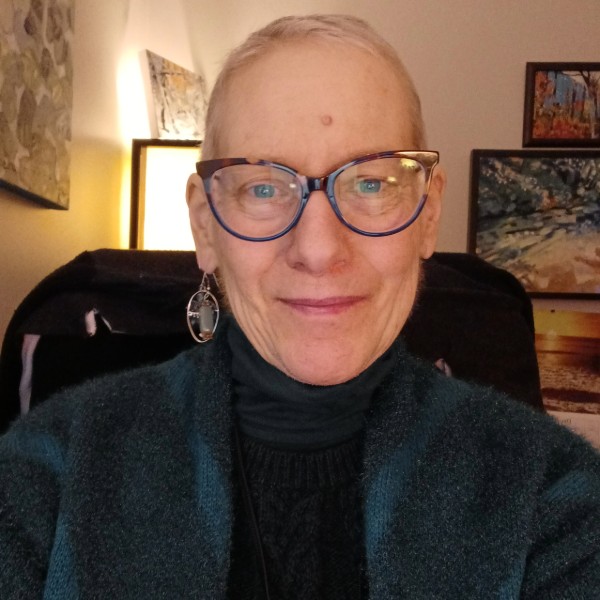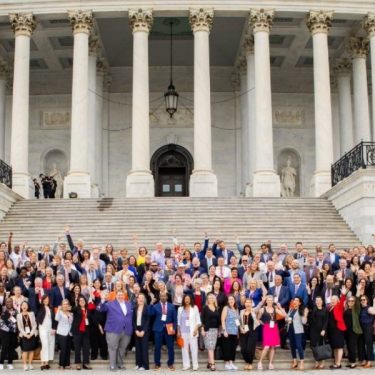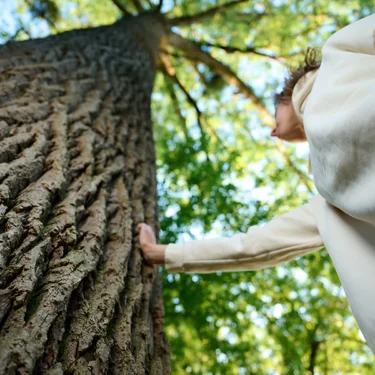They say good things come to those who wait. Just ask Deb Carlson, CPRS, CCHW, coordinator of peer services and a peer support supervisor at Newport Mental Health Center, a National Council for Mental Wellbeing member organization in Rhode Island. Carlson found her calling later in life through peer recovery. We sat down with her to learn how she’s making a mark in her community.
Happy National Recovery Month! What does recovery mean to you?
“Recovery means living your best life with the tools that work for you right now. Tools and strategies evolve over time ― recovery is not a linear process. There will be setbacks, but it’s important to move forward in a general direction and understand that perfection is not necessary, or even possible.”
You’re helping people heal through peer recovery. What does that entail?
“Peer recovery is provided by people who have lived or living experience with mental health or substance use challenges and are successfully navigating their own recovery journey. In our roles, we provide guidance, encouragement, understanding and hope that recovery is possible to others facing similar challenges, while speaking openly about our own. This openness is a building block of support.”
How are you addressing the whole person?
“A core tenet in peer recovery is ‘nothing about us is without us.’ We are the experts on our own experiences. When working with a client, we focus on two key questions: ‘What do you need today?’ and ‘How can I help you achieve that?’ When I first started this work, many people told me I was the first person who asked them what they needed, rather than telling them what to do. It can be debilitating to be told that your illness will be treated without considering you as a whole person, with strengths as well as challenges.”
Do you draw inspiration from the people you support?
“Absolutely! People with lived or living experience are some of the strongest and most resilient people I know. They continue to show up despite their challenges, attend appointments, take their medication and participate in supportive meetings. Their strength surpasses the destructive efforts of those who stigmatize and belittle. This resilience is why I’m so passionate about the work I do. I am honored and privileged to walk side by side with clients on their recovery journey.”
Things are changing … we’re seeing more young people openly discuss their mental health. But, for many, the fear of rejection by family and community remains a barrier to seeking care.
How has peer support changed your life?
“I identify as a person living and thriving with co-occurring challenges, including anxiety, depression and eating disorders. If peer support had been available when I was a teenager, my life would have been very different. I first learned about peer support in my 50s. It was recommended to me as a career by my therapist, and it became a life-changing gift. Now I can give that gift to people who come to us seeking help. Peer support has become my passion and mission in life. It’s the most meaningful thing I’ve ever done!”
Do you think the stigma around mental health is improving?
“Things are changing, which is encouraging. For example, we’re seeing more young people openly discuss their mental health. But, for many, the fear of rejection by family and community remains a barrier to seeking care. Some people avoid talking about their challenges because they fear having to face them or being judged. Acknowledging the difficulties we face can be freeing. By openly addressing them, we can reclaim our power and show that we can’t be hurt by others’ judgments.”
What are you currently working on that excites you?
“On Oct. 1, we will officially become a Certified Community Behavioral Health Clinic (CCBHC)! We will operate on an open-access model, where anyone can walk in and be seen by our intake staff, including a clinician, without an appointment. In preparation for our CCBHC status, we have expanded our services to include a program that supports children by working with their parents or guardians and another for young people who are transitioning into adulthood and experiencing an emerging mental illness or substance use disorder. This approach ensures that youth experiencing mental health issues early in adulthood receive care without long-term dependence on services.”
National Recovery Month may be coming to a close but we’re supporting recovery all year long! Join us by signing up for our monthly newsletter to stay informed and access resources.




